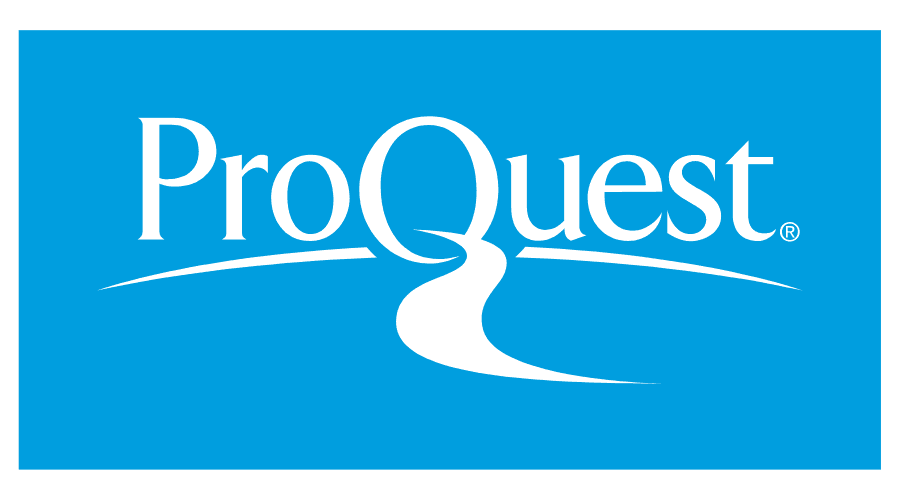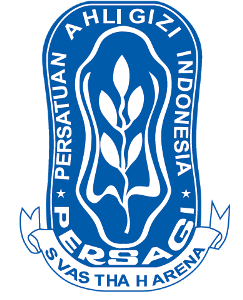Pengetahuan Ibu, Dukungan Sosial, dan Dukungan Tenaga Kesehatan terhadap Keputusan Memberikan ASI Eksklusif
DOI:
https://doi.org/10.21776/ub.ijhn.2018.005.02.3Keywords:
Pengetahuan, dukungan sosial, dukungan tenaga kesehatan, ASI eksklusifAbstract
Abstrak
Praktek di lapangan menunjukkan bahwa masih banyak ibu yang tidak memberikan ASI eksklusif. Provinsi Nusa Tenggara Barat (NTB) merupakan daerah yang berhasil memberikan ASI eksklusif. Wilayah Gangga memiliki cakupan terendah di NTB yaitu 30,4%. Penelitian ini mencoba menggali secara bersamaan prediktor munculnya masalah yang ada di wilayah Gangga yaitu berupa pengetahuan ibu, dukungan sosial baik dari suami, keluarga dan teman serta dukungan dari tenaga kesehatan. Desain penelitian observasional analitik cross-sectional digunakan dalam penelitian ini dengan memberikan kuesioner pada 165 responden yang memiliki bayi usia lebih dari 6-12 bulan. Hasil penelitian menunjukkan hanya 38,2% responden memutuskan memberikan ASI eksklusif di Gangga. Hasil uji regresi logistik bineri pada model terbaik menunjukkan variabel yang paling kuat berpengaruh berturut-turut adalah dukungan sosial suami (p=0,001), dukungan tenaga kesehatan (p=0,016), dukungan sosial keluarga (p=0,020) dan dukungan sosial teman (p=0,049). Sedangkan pengetahuan ibu (p=0,171) memiliki pengaruh yang tidak signifikan. Tingginya pengetahuan, besarnya dukungan sosial suami, keluarga, dan teman serta dukungan tenaga kesehatan secara simultan memiliki pengaruh terhadap keputusan ibu dalam memberikan ASI eksklusif.
Kata Kunci : Pengetahuan, dukungan sosial, dukungan tenaga kesehatan, ASI eksklusif
Â
Abstract
The real practices show that there are still many mothers who do not give exclusive breastfeeding. West Nusa Tenggara (NTB) Province is an area that shows successful exclusive breastfeeding. Gangga area has the lowest coverage in NTB, as much as 30.4%. This research tried to simultaneously explore the predictors of the emergence of problems that exist in Gangga region in the form of mother’s knowledge, social supports from husband, family, and friends, and also support from health workers. A cross-sectional observational analytic design was used in this study by providing questionnaires to 165 respondents who had babies older than 6-12 months. The results show only 38.2% of respondents in Gangga decide to give exclusive breastfeeding. From binary logistic regression test result in the best model, the strongest influential variables consecutively are husband’s social support (p=0.001), health personnel support (p=0.016, family’s social support (p=0.020) and friend’s social support (p=0.049). While mother’s knowledge (p=0.171) shows insignificant influence. The high level of knowledge, the amount of social support of husband, family, and friends, and support of health workers simultaneously have an influence on the mother's decision in giving exclusive breastfeeding.
Keywords: exclusive breastfeeding, health personnel support, knowledge, social support
References
- WHO. Children: Reducing Mortality [Internet]. Gaggero: WHO; 2017 [cited 2017 Okt 01]. Available from: http://www.who.int/mediacentre/factsheets/fs178/en/.
- Kemenkes. Menyusui dapat Menu-runkan Angka Kematian Bayi [Internet]. Jakarta: Kemenkes RI; 2017[cited 2017 Okt 01]. Available from:http://www.depkes.go.id/article/view/17081000005/menyusui-dapat-menurunkan-angka-kematian-bayi.html.
- Dinas Kesehatan Lombok Utara. Profil Kesehatan Lombok Utara 2015. Tanjung: Lembaga Penerbitan Badan Penelitian dan Pengembangan Kesehatan; 2016.
- KitanoN,Nomura K,Kido M, Muraka-mi K, Ohkubo T,Ueno M, et al. Combined Effects of Maternal Age and Parity on Successful Initiation of Exclusive Breastfeeding. Preventive Medicine Reports. 2016; 3: 121–126.
- O’Sullivan A, Farver M, Smilowitz JT. The Influence of Early Infant-Feeding Practices on the Intestinal Microbiome and Body Composition in Infants. Nutrition and Metabolic Insights. 2015; 8 (1): 1-9.
- Ida. Faktor-Faktor yang Berhubungan dengan Pemberian ASI Ekslusif 6 Bulan di Wilayah Kerja Puskesmas Kemiri Muka Kota Depok Tahun 2011. [Tesis]. Depok: Fakultas Kese-hatan Masyarakat Universitas Indo-nesia; 2012.
- Wulandari DE. Peran Ayah Pada Kepatuhan Ibu Dalam Pemberian ASI Eksklusif di Wilayah Kerja Puskes-mas Tegalrejo Kota Yogyakarta. [Tesis]. Yogyakarta: Fakultas Kedok-teran Universitas Gajah Mada; 2009.
- Evareny L. Peran Ayah Dalam Praktek Pemberian ASI di Kota Bukit Tinggi Provinsi Sumatera Barat. [Tesis]. Yogyakarta: Fakultas Kedok-teran Universitas Gajah Mada; 2009.
- Kurniawan B. Determinan Keber-hasilan Pemberian Air Susu Ibu Eks-klusif. Jurnal Kedokteran Brawijaya. 2013; 27 (4): 236-240.
- AyawineA, Kenneth AA. Determi-nants of Exclusive Breastfeeding: AStudy of Two Sub-districts in the Atwima Nwabiagya District of Ghana. Pan African Medical Journal. 2015; 22: 248-259.
- Vijayalakshmi P, Susheela T, Mythili D.Knowledge, Attitudes, and Breast Feeding Practices of Postnatal Mothers: A Cross Sectional Survey. International Journal of Health Sciences. 2015; 9 (4): 264-374.
- BrownA, Peter R, Michelle L. Health Care Professionals’ and Mothers’ Perceptions of Factors that Influence Decisions to Breastfeed or Formula Feed Infants : A Comparative Study. Journal of Advant Nursing. 2011; 67 (9) : 1993-2003.
- Arusei RJ, Grace AE,Fabian E. Feeding Patterns and Growth of Term Infants in Eldoret, Kenya. Food and nutrition bulletin. 2011; 32(4):307-314.
- Rempel LA,Rempel JK. The Breast-feeding Team: The Role of Involved Fathers in the Breastfeeding Family. International Lactation Consultant Association. 2010; 27 (2): 115-121.
- Tewabe T, Mandesh A, Gualu T, Alem G, Mekuria G, Zeleke H.Exclusive Breastfeeding Practice and Associated Factors Among Mothers in Motta Town, East Gojjam Zone, Amhara Regional State, Ethiopia, 2015: A Cross-Sectional Study. International Breastfeeding Journal. 2017; 12 (12): 1-7.
- Februhartanty J. Strategic Roles of Fathers in Optimizing Breastfeeding Practices : A study in an Urban Setting of Jakarta. [Disertasi]. Jakarta: Fakultas Kedokteran Universitas Indonesia; 2008.
- Arifah I, Rahayuning DP, Rahfiludin MZ. Father’s Roles on the Exclusive Breastfeeding Practice. Jurnal Kese-hatan Masyarakat Nasional. 2014; 8 (2): 83-92.
- Mithani Y, Premani ZS, Kurji Z, Rashid S. Exploring Fathers’ Role in Breastfeeding Practices in the Urban and Semiurban Settings of Karachi, Pakistan. The Journal of Perinatal Education. 2015; 24 (4): 249-260.
- SwartsS, Kruger HS,Dolman RC. Factors Affecting Mothers’ Choice of Breastfeeding vs. Formula Feeding in the Lower Umfolozi District War Memorial Hospital, Kwazulu-Natal. Health SA Gesondheid Journal. 2010; 15 (1): 1-7.
- TenfeldeSM, Lorna F. Arlene MM, Pamela DH.Factors Affecting Mo-ther's Choices and Decisions Related to Breastfeeding Practices and Weaning Habits. Nursing Research. 2012; 61 (2):86–95.
- NeginJ, Coffman J, Vizintin P, Greenow CR.The Influence of Grand-mothers on Breastfeeding Rates: ASystematic Review. Biomedical Central Pregnancy and Childbirth. 2016; 16 (91): 1-10.
- Tan K. Factors Associated With Ex-clusive Breastfeeding Among Infants Under Six Months of Age in Penin-sular Malaysia. International Breast-feeding Journal. 2011; 6 (2): 1-7.
- FoxR, Sarah MM, Mary N. UK Women’s Experiences of Breast-feeding and Additional Breastfeeding Support: AQualitative Study of Baby Café services. BMC Pregnancy and Childbirth. 2015; 15: 147-158.
- Nur H, Kuntoro. Peran Karakteristik Responden dan Dukungan Tenaga Kesehatan dalam Identifikasi Faktor yang Terkait dengan Kegagalan Pemberian ASI Eksklusif. Jurnal Biometrika dan Kependudukan. 2016; 5 (1): 52–60.
- CarolineAB, Elisabeth IHW, Anette CE. Two Sides of Breastfeeding Support: Experiences of Women and Midwives. InternationalBreastfeeding Journal. 2010; 5: 20-27.
- Awi DD, Alikor EAD. Barriers to Timely Initiation of Breastfeeding among Mothers of Healthy Full-Term Babies who Deliver at the University of Port Harcourt Teaching Hospital. Nigerian Journal of Clinical Practice. 2007; 9(1): 57-64.
Downloads
Published
How to Cite
License

This work is licensed under a
Creative Commons Attribution-NonCommercial 4.0 International License



















